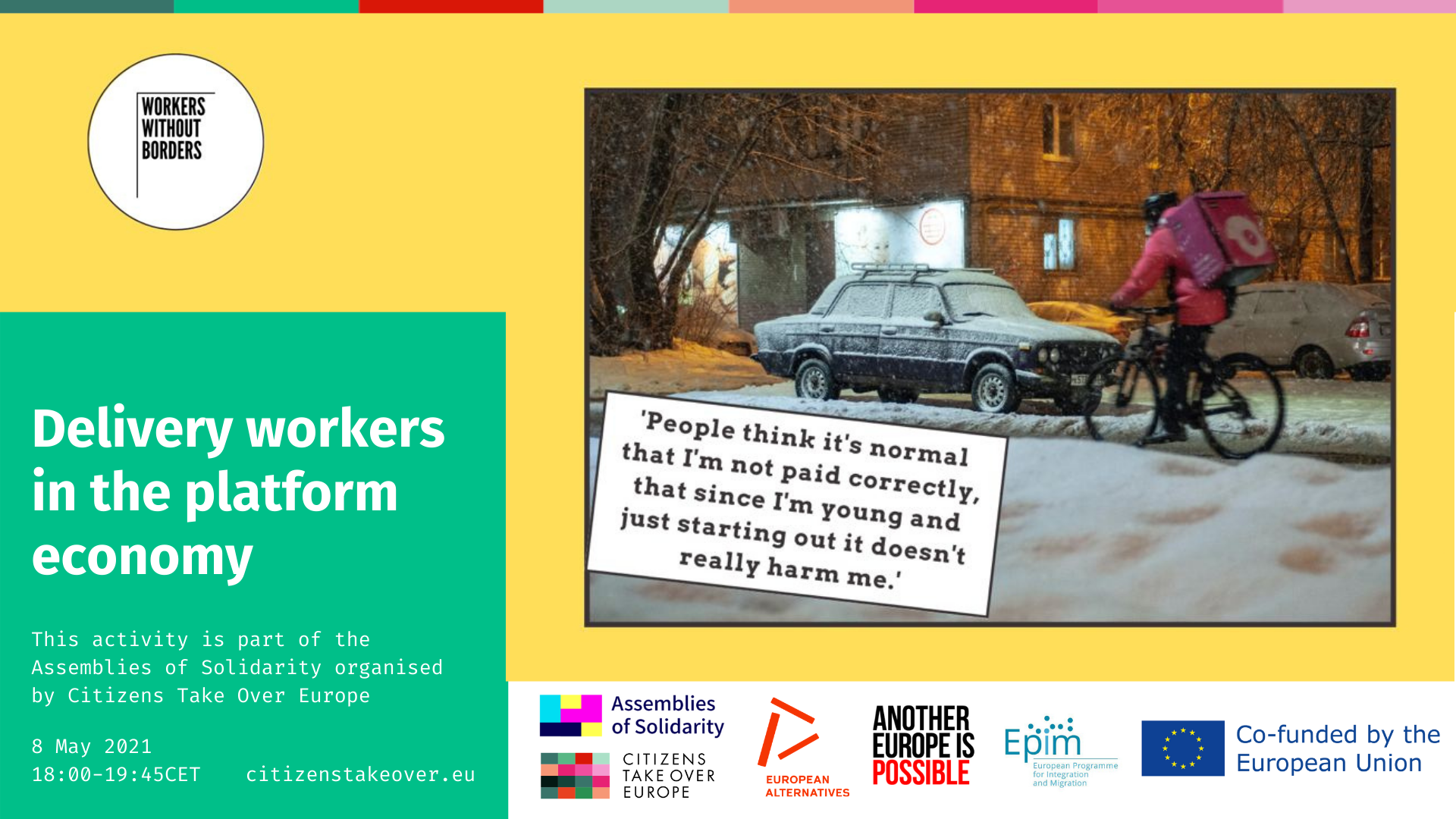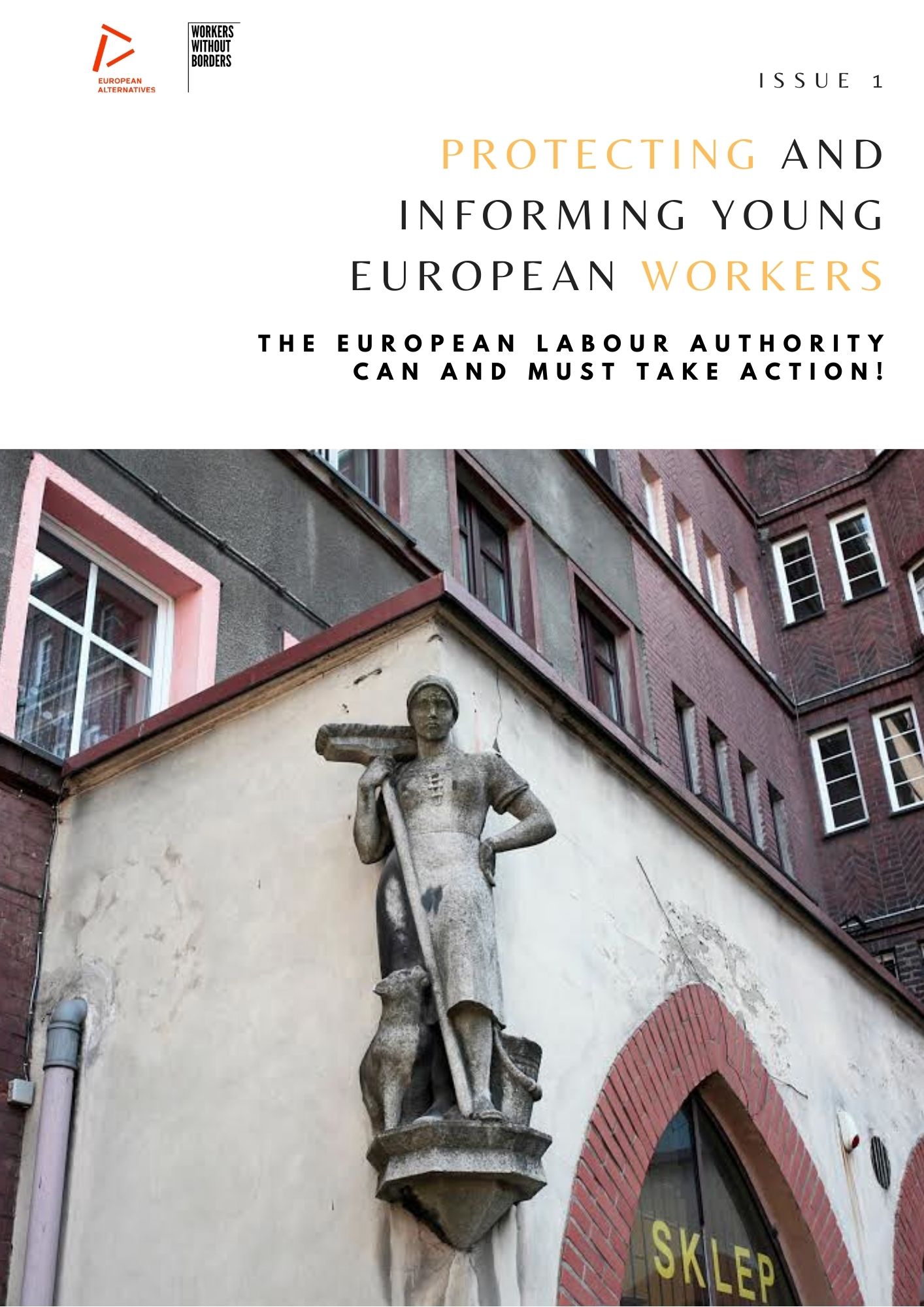May 1, 2021
Now is time to move on from precarious Europe: the Social Pillar must ensure fair, decent and safe worker mobility in the EU
Europe depends on workers moving. Whether they are making deliveries, harvesting fruits and vegetables, caring for elderly people, working in construction, metal workers, lawyers, doctors, researchers or in many other kinds of work. People who move country in Europe are essential to the wellbeing of everyone.
The COVID-19 pandemic has revealed vulnerabilities of these workers that preexisted the health crisis: mobile workers are more at risk of exploitation, less likely to be well represented by trade unions and national authorities, and have many specific needs when it comes to information, to social protection and access to health services, to secure housing and the possibility of crossing borders to care for their families. Regrettably, in the first months of the pandemic and in the summer of 2020, the priority of the European Union was more on securing supply of labour and goods across borders, than reinforcing the rights and protections of vulnerable essential workers. In the second year of the pandemic, as Europe turns to recovery and rebuilding its economy, the priority needs to be removing precarity for workers who move.
The Social Summit in Porto on the 7th May will be an important occasion for the European Union to commit to building a Europe in which no one falls between the gaps, and show that it has learnt from a decade of crisis that indecent, insecure and underpaid work creates vulnerabilities for the whole society. The situations of third country nationals and undocumented migrants in Europe are particularly concerning, and no economy based on solidarity can be achieved without prioritizing the equal protection of these workers. The newly created European Labour Authority (ELA) should have a central role in ensuring decent, fair and safe working conditions for all workers in the European Union, irrespective of their nationalities.
The newly created European Labour Authority (ELA) should have a central role in ensuring decent, fair and safe working conditions for all workers in the European Union, irrespective of their nationalities.
In the coming weeks, European Alternatives is organising a series of discussions with workers, academics and activists from across the continent on working conditions and rights in three sectors: the platform economy, agriculture and care work. We seek to identify common problems, effective strategies and be able to formulate proposals for new legislation, better enforcement and better collective action. Just as importantly we aim to network workers organisations across borders and build the capacity and knowledge of workers to organise themselves. Our workers without borders project welcomes everyone who wants to contribute to this collective effort.
Amongst the priorities and ideas we have already identified through speaking with workers over the past year are the following. The European Union should:
- Assess specific risks to mobile workers in the EU and take early action: Many of the risks faced by mobile workers in Europe in the pandemic could have been identified and addressed prior to the emergency if adequate risk assessment had been done, and if workers and their trade unions representatives had been asked. The newly created European Labour Authority has a responsibility for risk assessment and should specifically assess risks to mobile workers, take these risks into account in joint inspections, and be swift in proposing action to mitigate risks for mobile workers to national authorities.
- Ensure decent working conditions for all: the pandemic has revealed that in a number of sectors where mobile workers are particularly present, including in the care economy, in agriculture and in platform and delivery work, working conditions and access to contractual rights like sick pay are often unacceptable and out of line with national and European standards. In addition to promoting decent wages, the European Union must put binding requirements on member states to address these problems and take determined enforcement action against unscrupulous employers and employment agencies. The EU should consider introducing conditionality of European funding for farms and other employers where labour rights are not respected.
- Collect adequate data on migrant and mobile workers: adequate policy making starts from adequate data, but the European Union has a poor quality of data on how many of its workers have moved country and in what sectors.
- Protect both European Union citizens and third country nationals: Unequal treatment of European and third country nationals creates downward pressure on rights and standards in the European economy, and risks setting workers against each other. The European Social Pillar and European Labour law should prevent discrimination in labour law with regard to origin and residence status.
- Respect women’s labour rights in particular: The pandemic has revealed the greater risks and burden often faced by female workers, particularly if they have moved country. The European Union should work not only towards equal pay for men and women, but equal rights and opportunities between genders, because women are at a significantly higher risk of having to do underpaid or unpaid work that is not legally regulated.
- Assist young mobile workers who are particularly vulnerable: The pandemic and the recession it has caused disproportionately affect the job prospects of young people, and many young people who have moved country for work have faced specific difficulties in the context of lockdowns and travel restrictions. European Union initiatives to boost employment and mobility need to appreciate that young workers have specific vulnerabilities arising from their stage of life, and ensure that they are adequately supported when looking for and taking up a job in another country with information and resources and a means to enforce their rights.
- Introduce an initiative on safe and healthy accomodation standards: The pandemic has revealed inadequate and unsafe accommodation provided to many mobile workers. The European Commission should introduce an initiative on accommodation for mobile workers to ensure that where accommodation is provided by the employer, it meets binding minimum health and safety standards. Compliance with these standards must be strictly controlled.
- Coordinate social security across EU member states: Social security coordination in Europe remains one of the most complex areas of European employment law, and abuses by employers are frequent, leading to workers who do not know where they have social security rights or missing out on their rights altogether. The European Union must accelerate social security coordination and make it straightforward for workers to know what social security rights they have. The issuance of A1 certificates by employers to workers to prove their rights must be adequately enforced.
- Prevent abuses of agency workers’ rights: In many sectors such as care and construction work, the use of agency workers is increasingly common. Often workers are recruited by an agency in their home country before being sent to another country to work. This market is still largely unregulated and can lead to multiple abuses, with employment relationships being highly unclear. The European Union should introduce a legal instrument on agency and placement recruitment, based on Convention 181 of the ILO to ensure minimum standards, prevent abuse and ensure all workers are adequately made aware of their rights and nature of their employment contract at the point of recruitment. The European Commission could lead by example by ensuring that its own EURES job service has the highest standards and provides the most support possible to workers at recruitment stage and throughout the employment.
- Fight bogus self-employment: The European Union should fight against bogus self-employment, building on the work of the Platform against Undeclared Work, ensuring coordination between European countries and proper enforcement, and ensuring the burden is put on the employer to correctly recognise employment relations rather than on individual workers.
- Support small-business owners, mini-jobbers and freelancers: The COVID 19 crisis shows that small-business owners and solo freelancers in the arts, culture and creative industries are particularly hard hit because they have no income and at the same time are often overlooked by assistance programmes. The same applies to students, who are insufficiently socially protected in mini-jobs. At the European level, there should be a stronger fight for the rights of these workers, because employment, growth and innovation are largely driven by this group of workers, even though they usually enjoy inadequate labour rights.
- Ensure the right to unionize across borders: Trade Unions play a crucial role in defending the rights of workers. In addition to ensuring all workers have the right to be helped by trade unions, the European Union should encourage the unionisation of workers in the most precarious parts of the economy, strengthen transborder unions and collaborations between unions.



